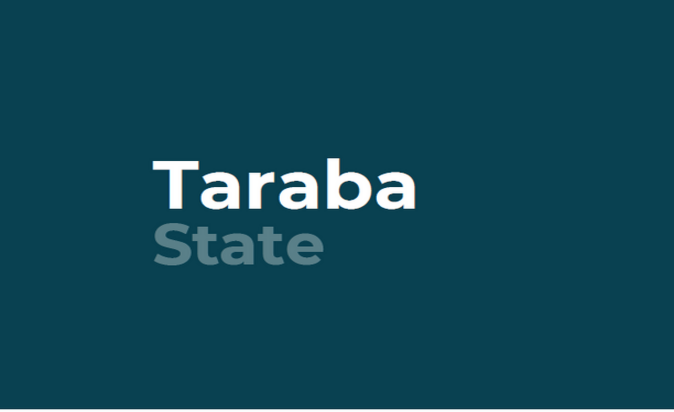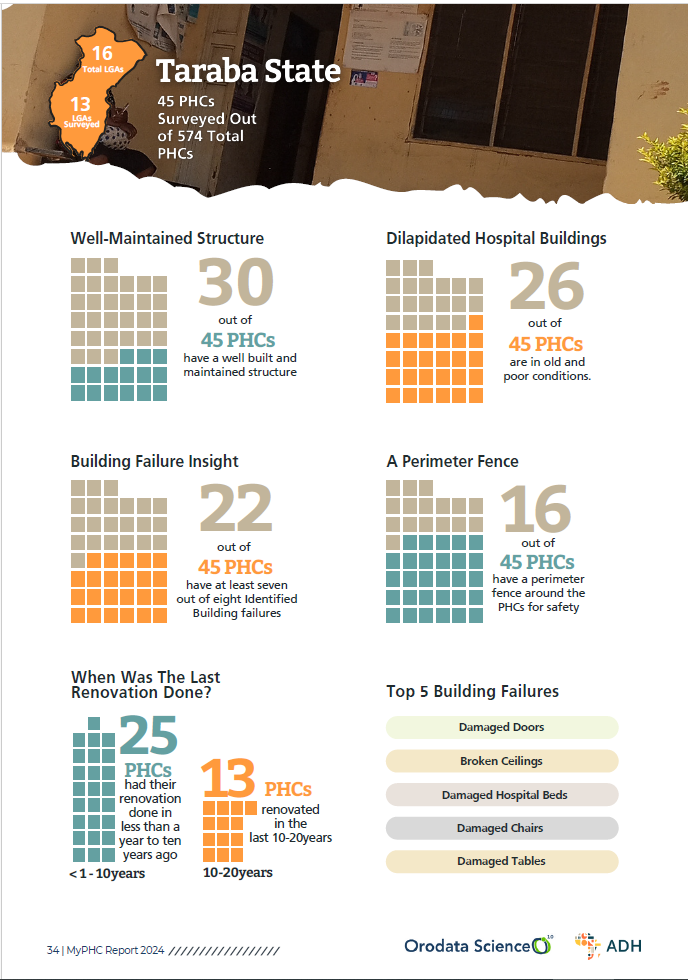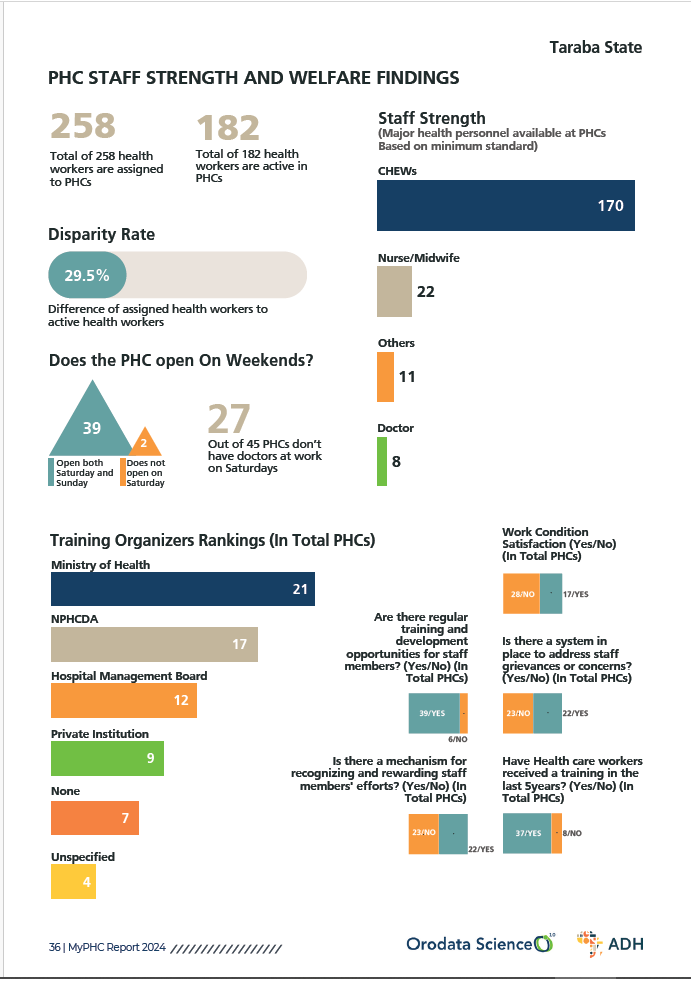Taraba State’s primary healthcare system also faces significant challenges, with 45 surveyed Primary Healthcare Centers (PHCs) exhibiting notable infrastructure deficiencies. Despite recent renovations, half of the surveyed PHCs present at least 7 out of 8 identified building failures, indicating significant structural issues.
The state’s PHCs demonstrate substantial gaps in facilities and resources, with only 21 out of 45 PHCs possessing clean and functional restrooms. Waste disposal methods are often unsafe, and water sources are mainly boreholes or rainwater. Power supply is provided by solar or generators, highlighting substantial gaps in sanitation, water, and energy resources.
Medical supply and transport challenges persist, with half of the surveyed PHCs facing shortages in at least 3 out of 18 identified medical supplies, including oxygen gas, GV ink, gloves, personal protective equipment, and stretchers. The common means of transportation are Okada, on foot, and public cars, significantly hindering the efficiency and effectiveness of healthcare delivery.
Labour ward equipment and bed availability are limited, with only 15 PHCs having functional ambulances, and bed availability ranging from 1 to over 10 beds. Only 10 PHCs have pharmacies, further straining the healthcare system and impacting patient care quality and outcomes.
The health workforce in Taraba faces significant disparities, with 258 assigned health workers, but only 182 active, resulting in a disparity rate of 29.46%. Most PHCs lack doctors available on weekends, while 39 PHCs are open both Saturday and Sunday. The staff strength includes 170 CHEWs, 22 nurses/midwives, and 8 doctors, among others, undermining the quality of specialized care.
Staff satisfaction and training are concerns, with 28 PHCs reporting dissatisfaction with work conditions, affecting staff morale and retention. The absence of systems to address grievances in 23 PHCs exacerbates this issue, creating an environment where staff concerns are unaddressed. While 39 PHCs offer regular training, the lack of recognition and reward mechanisms in 23 PHCs discourages staff from going above and beyond, impacting overall service quality.
Recruitment and training in Taraba are decentralized, involving multiple agencies like the Ministry of Health and NPHCDA, which can lead to inconsistencies in staffing and training quality. Recent recruitment was conducted by the Ministry of Health, NPHCDA, Hospital Management Board, Private Institutions, and others.
Healthcare utilization rates are low, with an average daily usage of only 2 patients per PHC and a total community patronage of 425, indicating potential issues with accessibility, trust, or quality of care. This low engagement with the healthcare system can lead to untreated health issues and a reliance on alternative, possibly less effective, medical solutions.
The estimated mortality of 267 persons in the last five years reflects severe health outcomes likely exacerbated by inadequate healthcare services. With patient affordability at 48%, nearly half the population struggles to afford medical care, further limiting access to essential health services and contributing to poor health outcomes.
Referral patterns and treatment quality are concerns, with 534 referrals over the last year, primarily due to complications, infrastructure issues, and lack of medical supplies, highlighting significant gaps in the healthcare system’s ability to manage complex cases.
The mixed quality of treatment, with 24 PHCs rated Excellent-Good and 21 PHCs rated Poor-Very Poor, shows a divide in service standards. Similarly, immunization services are varied, with 34 PHCs rated Excellent-Good and 11 PHCs Poor-Very Poor, which could lead to uneven health outcomes and disease prevention across the region. The general rating of 23 PHCs as Excellent-Good and 22 PHCs as Fair-Very Poor indicates a significant disparity in healthcare quality, resulting in unequal health outcomes and further exacerbating health inequities in Taraba.
For a more detailed analysis and recommendations, download the report. [Click here]



